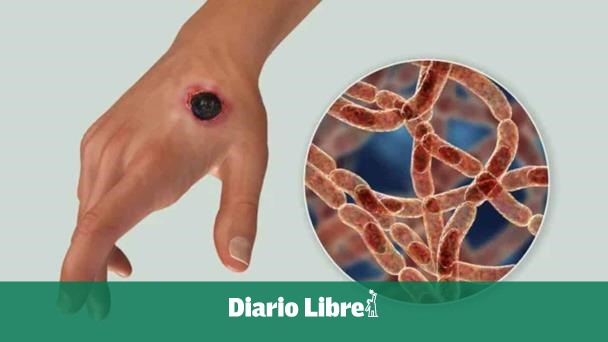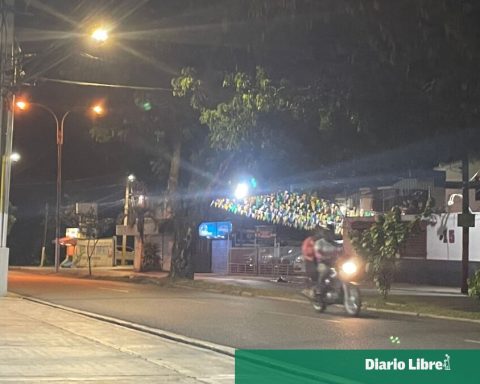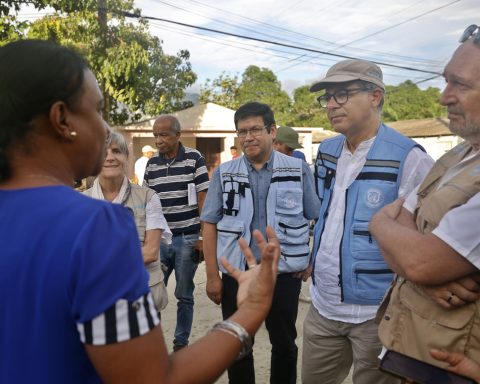Following the detection of suspected cases of anthrax In the western part of Haiti, the Deputy Minister of Collective Health, Eladio Perezassured this Monday that the health authorities remain watchmen and in communication consistent with the positions of the Pan American Health Organization (PAHO) and the Centers for Disease Control and Prevention (CDC) in the neighboring country.
“In each of the hospitals, in the border Above all, the following have been activated: protocols. The part epidemiological has activated a surveillance sentinel, that is, We are attentive to any eventualitybut there is no diagnostic confirmation,” he said.
Perez explained that the anthraxalso known as carbuncleis a zoonosis (transmitted from animals to people) caused by the bacteria Bacillus anthracisand infection can occur through various means: inhalation of spores, consumption of meat from an infected animalby blood transfusion and skin soresthe latter being the most common.
It is estimated that up to 95% of the infections by anthrax present a demonstration cutaneous with a papule that turns into a blister and, when it bursts, a blackish crust forms.
“For the moment, this is just a clinical suspicionwithout any diagnostic tests performed. There is no need for us to create an alarm or an alert with this, but we do need to be watchmenthat’s why we have activated all the protocols that are established in situations like these,” the epidemiologist reiterated.
Hospitals with capacity for diagnosis
The vice minister stressed that local hospitals have the technology to carry out a diagnosis of anthrax.
“A crop can be used, We have PCR capacitywe also have antibody tests that we can use. The country has the diagnostic capacity to work on this disease. It should be noted that the treatment It is very simple, if you do a diagnosis fast, all the infections can be treated,” he said.
He indicated that the treatment consists in antibiotics commonly used as: penicillin, erythromycin, tetracyclines, ceftriaxone and above all, doxycycline.
- “We are supplied at the public level and I know that at the private level as well, since these are widely used. The system is ready to respond”he guaranteed.
The official said that the Provincial Health Directorates are informed and in communication with the National Health Service (SNS). Likewise, it was instructed to increase the surveillanceespecially at the border, of any person who is going to enter the country, highlighting those who may have obvious symptoms of the disease. Also He asked to be careful with sick animals.
Low transmissibility
“It should be noted that his transmissibility It’s low, it’s not that contagiousespecially in the gastrointestinal tract or cutaneous“, the doctor stressed.
When questioned about the existence of vaccines to counteract the effects of anthraxPerez said that “there are vaccines in countries that are endemic of the disease. This is not endemic in the Dominican Republic or even in Haiti.”
In African countries, there are vaccines for the animals and also for the livestock staff who work alongside them.

















